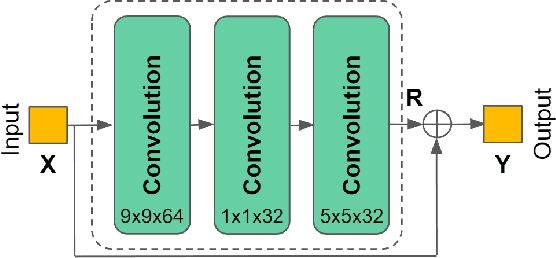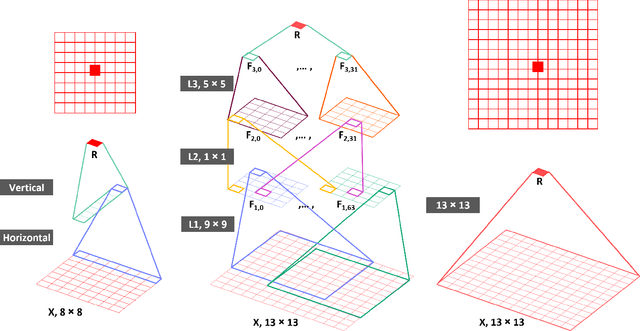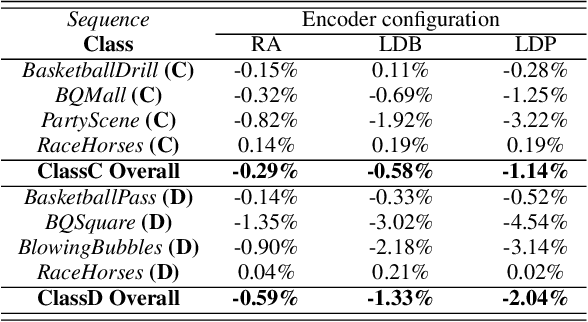Interpreting CNN for Low Complexity Learned Sub-pixel Motion Compensation in Video Coding
Paper and Code
Jun 11, 2020



Deep learning has shown great potential in image and video compression tasks. However, it brings bit savings at the cost of significant increases in coding complexity, which limits its potential for implementation within practical applications. In this paper, a novel neural network-based tool is presented which improves the interpolation of reference samples needed for fractional precision motion compensation. Contrary to previous efforts, the proposed approach focuses on complexity reduction achieved by interpreting the interpolation filters learned by the networks. When the approach is implemented in the Versatile Video Coding (VVC) test model, up to 4.5% BD-rate saving for individual sequences is achieved compared with the baseline VVC, while the complexity of learned interpolation is significantly reduced compared to the application of full neural network.
 Add to Chrome
Add to Chrome Add to Firefox
Add to Firefox Add to Edge
Add to Edge